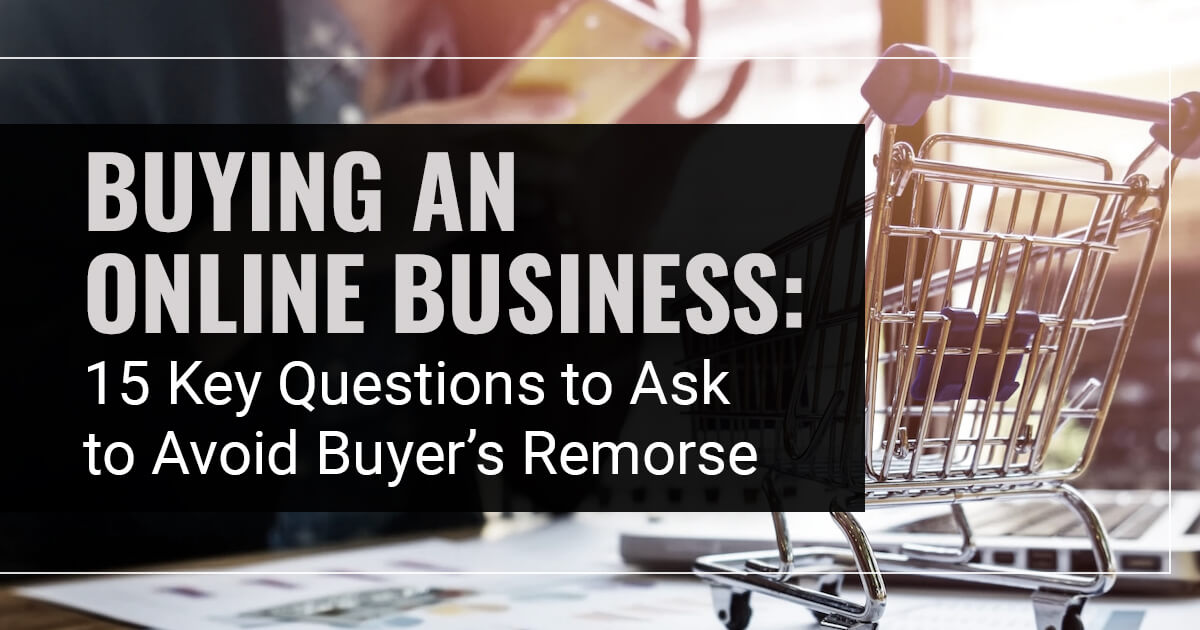Due diligence is arguably the most important thing a buyer can do before purchasing an online business.
The process requires you to put your detective’s hat on and investigate key areas of the business to assess its potential and confirm that the information the seller provided you with is accurate.
Asking the right questions will help reveal the means, motives, and opportunities that will determine if the business is the golden opportunity you’ve been searching for or a burden best steered clear of.
Let’s begin your search for answers by solving an important puzzle; identifying the fundamental questions you should answer before purchasing an online business.

Evaluate the Business’s Potential
In most cases, no one knows a business better than its owner. Keeping an open line of communication with the seller is often the key to a smooth acquisition.
Here are some questions that you should ask the seller to get the inside scoop on the online business you’re interested in buying.
Why Are You Selling the Business Now?
The seller’s motivation for selling can provide a lot of insight into the future potential of the business.
Common reasons for selling include using the proceeds from the sale to start another business in a different niche, an inability to maintain profitability or the seller may have maxed out their capacity to grow the business further.
In these cases, it’s worth digging deeper to determine if new competition in the niche or a declining market may have backed the seller into a corner.
If the seller’s aim is to free up more of their time, it may be a sign that the business is very labor-intensive. If you’re unwilling to dedicate a large portion of your own free time to the business, you should factor in the cost of outsourcing operations when you negotiate the deal.
What Could You Have Done Better?
The benefit of buying an established business is that you can learn from the previous owner’s successes and downfalls.
Asking the seller what they would have done differently or what could have been improved upon will give you clarity on how to move forward and prepare yourself for potential challenges that may arise.
This question helps to highlight some of the pitfalls the seller may have fallen prey to so that you can avoid repeating their mistakes.
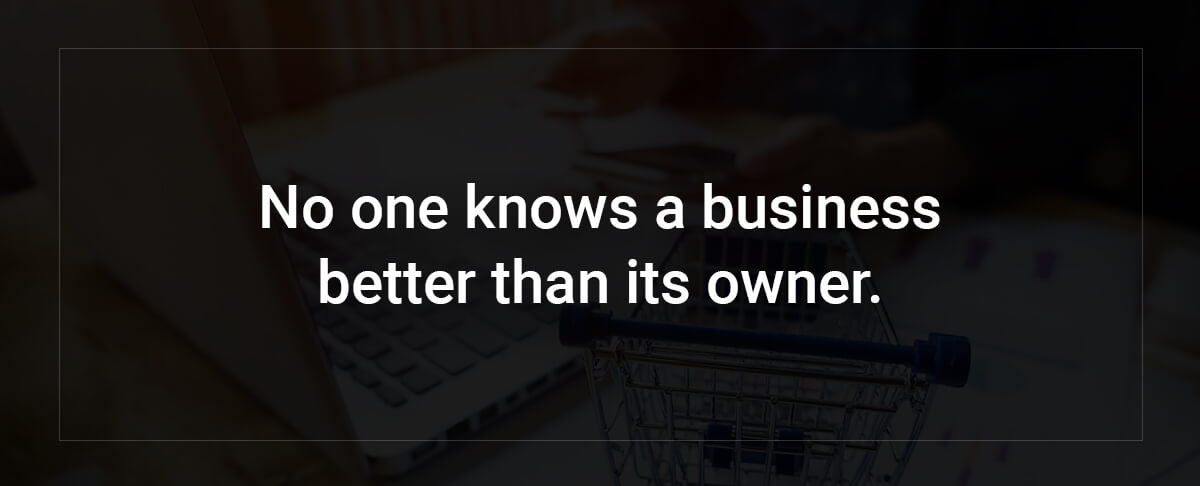
What Are the Potential Growth Opportunities?
No one wants to buy a business only to watch it stagnate over time.
Identifying growth opportunities before you make the purchase will put you in the best position to make a success of your new acquisition.
Asking the seller “If you were unable to sell the business, how would you grow it moving forward?”, will help you gauge how scalable the business is and how much capital you’ll need to invest to take it to the next level.
What Skills Do I Need to Grow the Business?
Whether you’re a first-time business buyer or an experienced acquirer, it’s wise to take stock of the skills and knowledge you’ll need to not only run the business but to grow it too.
This is where detailed standard operating procedures (SOPs) come in handy. SOPs provide a step-by-step breakdown of the various operations and processes needed to run the business. This will help you identify any gaps in your knowledge.
Keep in mind that if you lack the skills needed to maintain a certain area of the business, it doesn’t have to be game over. You can always outsource that work to a skilled professional. This allows you to focus your efforts on other areas of the business that you are more proficient in.

Examine the Operational Structure
Once you’ve identified whether the business has good growth potential, the next step is to dissect the inner workings of the business.
The goal here is to find out if the business runs like a well-oiled machine, or if it’s riddled with redundancies and broken processes.
Streamlined operations are a good sign if you’re looking for a turnkey business while improving inefficiencies can provide you with a quick win when you take over the business.
These questions will help you determine just how organized the business really is:

Are the Financial Documents up to Date?
The most important document you can get your hands on is the profit and loss statement (P&L). This document breaks down income and expenses, revealing a great deal of information about the performance of the business.
The P&L will help you determine how much profit the business is making and whether the profits are increasing, stable, or decreasing.
When assessing these figures, be sure to ask the seller how much they are taking as a salary as this can skew the numbers.
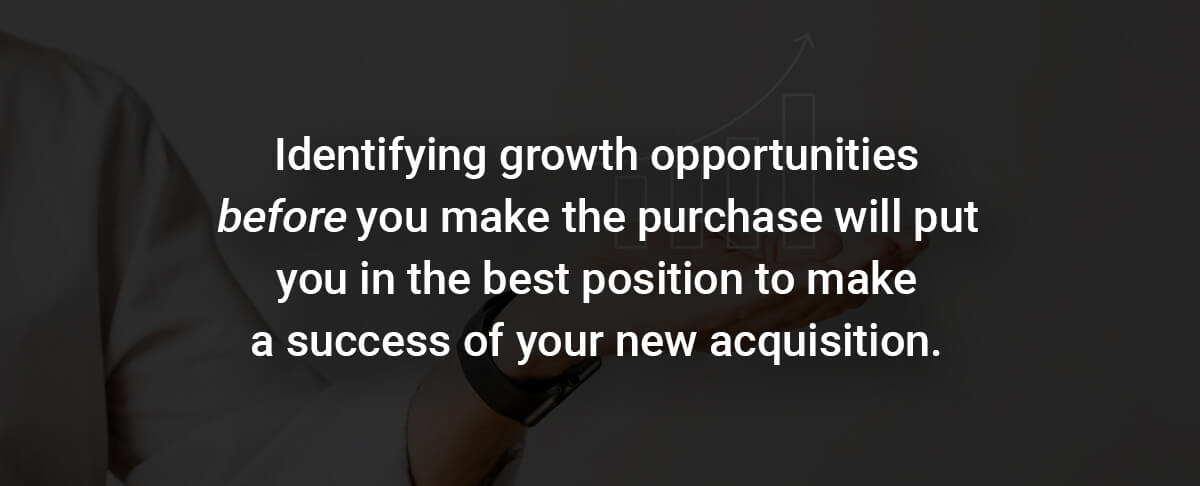
Have You Created Detailed Sops?
As mentioned earlier, standard operating procedures (SOPs) provide you with a blueprint of how to perform the various processes needed to run the business. These documents will show you how simple or complex the day-to-day operation of the business is.
A detailed set of SOPs is a good sign that the seller made an effort to improve workflow, saving the business time and money.
Not every seller will have prepared SOPs, which may be indicative of how proactive they were in their operations.
How Do You Drive Traffic to Your Business?
A business is nothing without its customers. Understanding exactly where those customers come from will play a vital role in your success as the new owner of the business.
Ask the seller for a breakdown of the different traffic channels and any marketing campaigns or strategies that they’ve previously tried. If the seller is using paid ads or influencer marketing, be sure to note the cost associated with each channel.
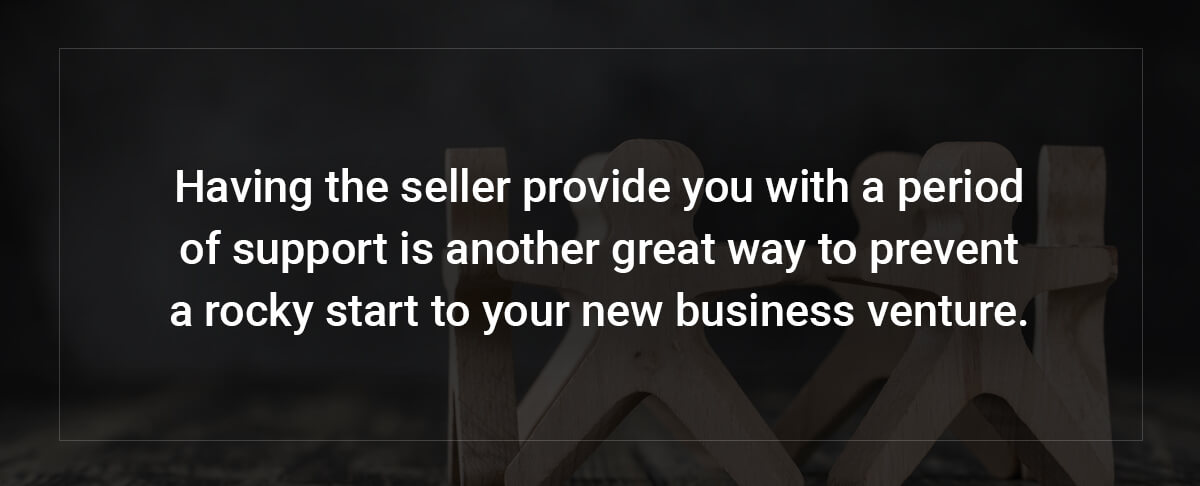
Diversification is the best way to mitigate risk, so if the business only has a handful of traffic channels, start thinking about how you can add more.
How Much Time Do You Spend on the Business per Week?
One of the main drawcards of online businesses is that they are often fairly passive, only requiring a few hours per week of the owner’s time.
You don’t want to buy an online business only to find yourself trapped 9-5 work cycle.
That said, the time required to maintain the business varies greatly across different monetization methods and industries, so it’s worth asking the owner about what a typical work week looks like for them.
While some tasks can be delegated and outsourced when you take over the business, keep in mind that the cost of outsourcing labor will eat into your bottom line.
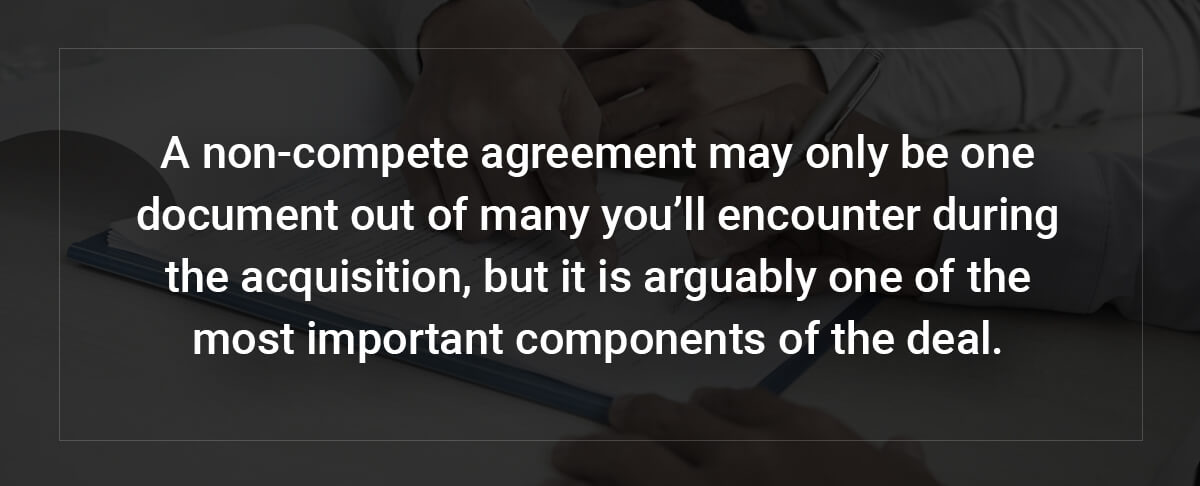
What Does Your Supply Chain Look Like?
A good supply chain is the backbone of an eCommerce business, so make sure to quiz the seller about their suppliers, freight forwarders, storage facilities, and 3PL partners.
Find out how many suppliers the seller works with and whether they have any formal contracts in place. Clarify how long it usually takes to replenish inventory, how often new stock is ordered, and the average size of the orders.
Keep in mind that inventory is often not included in the sale price, so you’ll need extra capital to reorder inventory when you buy the business.
Do You Have Any Employees or Contractors?
If the seller outsources any work, you should establish whether the workers are employees of the business or external contractors.
In the case of employees, familiarize yourself with the terms of their employment, any benefits offered to them, and if they are open to continue working with you after the sale.
If the business has a large team, it’s worth taking the time to speak to a few of the employees to get an idea of the turnover rate, company culture, and what the employees will expect of you as their new leader.

Dissecting the Deal
Determining if the business you’re interested in buying is a worthy asset or not is only the first piece of the puzzle.
Your next task will be to analyze the deal itself to see if you’re getting good value for your money.
How Did You Calculate the Value of the Business?
If you’re buying a business from a trusted broker or marketplace, odds are that they will use a standard valuation formula to determine the sales price of the business (although it is still worth asking how the valuations work).
When buying directly from the seller, it’s important to make sure that they haven’t simply plucked a sale price out of thin air. Don’t be afraid to ask for a detailed explanation of how they calculated the business value to make sure you’re getting a fair price.
What Assets Are Included in the Sale?
One of the key factors that dictate the value of the business is the assets included in the sale.
In the case of online businesses, these assets commonly include things such as domains, email lists, platform or affiliate accounts, and SOPs. The list of assets can also contain legal documents such as licenses, certificates, and permits as well as trademarks and the rights to intellectual property.
Specifying the list of assets to be transferred after the sale might be a tedious job, but will go a long way to ensuring a smooth transition when you take over the business.

How Much Support Will You Provide?
On the subject of smooth transitions, having the seller provide you with a period of support is another great way to prevent a rocky start to your new business venture.
This support could be in the form of emails, phone calls, video calls, or even physical meetings depending on your respective locations.
Most sellers want to see the business they put so much effort into succeed after their exit and will be happy to provide you with advice and support.

The Right Side of the Law
There is no shortage of legal paperwork to sign when you buy a business, but it’s worthwhile asking a few pointed questions to make sure you don’t run into any legal troubles down the road.
Are You Aware of Any Pending Lawsuits or Penalties?
The last thing you want as a buyer is to inherit ongoing legal problems when you take over a business.
It’s not unusual for online businesses to be hit with Google penalties or Amazon account suspensions due to violating terms of service. While the majority of these penalties aren’t major red flags and are relatively easy to bounce back from, it’s best for the seller to resolve them before you purchase the business.
If the seller isn’t upfront about ongoing legal issues or doesn’t seem interested in addressing them before they exit, it may be best to walk away from the deal.
Are You Willing to Sign a Non-competition Agreement?
A non-compete agreement may only be one document out of many you’ll encounter during the acquisition, but it is arguably one of the most important components of the deal.
If the seller seems reluctant to sign a non-compete, they may be planning to start a similar business to the one you’re buying and could directly compete with you.
Non-compete agreements are mandatory when selling through many marketplaces and online business brokers, but not every organization enforces them. Be sure to enquire about this before signing the deal.

Start Your Acquisition Journey the Right Way
Buying an online business is a big investment that could change the course of your life.
With so much riding on one purchase, you should give yourself the best chance at success by leaving nothing up to chance. Familiarizing yourself with every aspect of the business will help you pounce on growth opportunities and help to prevent buyer’s remorse
While this list of questions is a great way to identify the ideal business for your needs, it’s wise to do deeper due diligence before you sign on the dotted line and commit to the sale.
If you’re ready to put these questions to the test and begin the search for your ideal business, look no further than the Empire Flippers marketplace. With hundreds of quality online businesses for sale, you’re sure to find a business that’ll suit your criteria.

